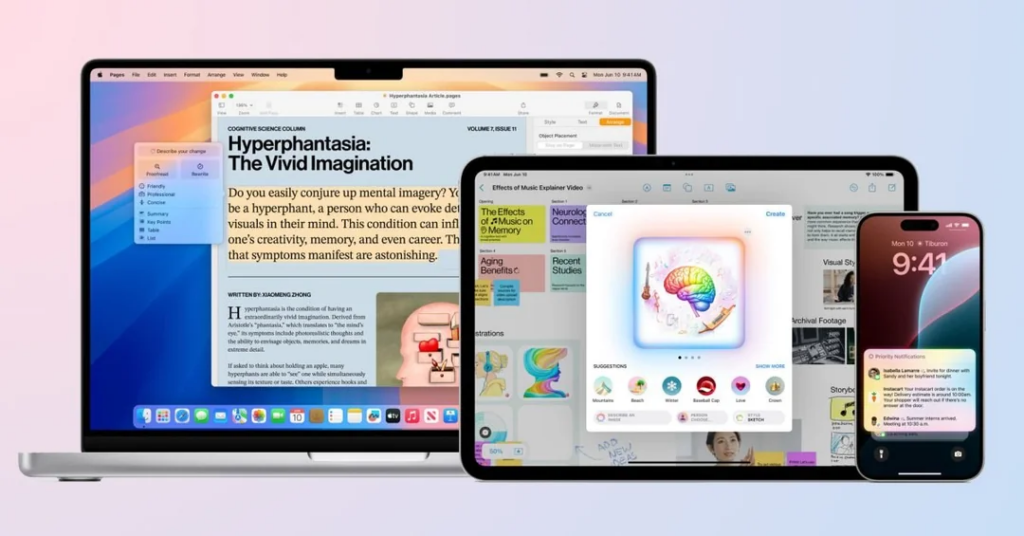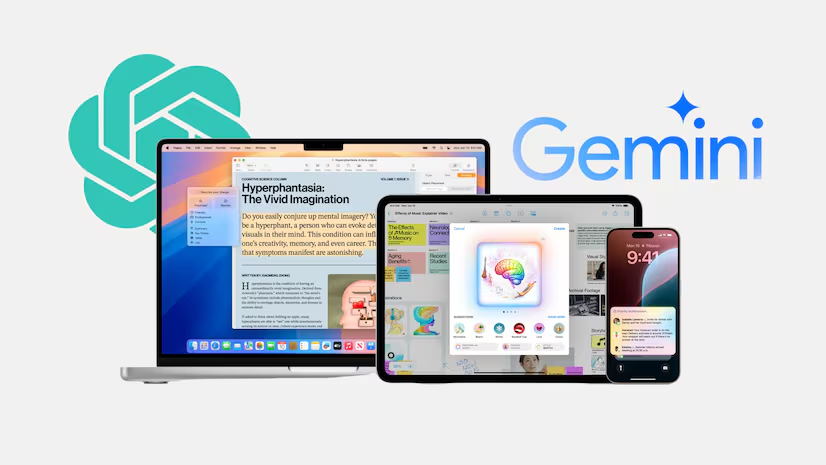Google CEO Sundar Pichai shared exciting news during his appearance at the ongoing antitrust trial: Google Gemini, the company’s advanced AI system, could soon be integrated into Apple Intelligence. The integration will take place in 2025, bringing Google’s AI to a massive new audience—iPhone users. This integration could be pivotal in the battle for dominance in AI-powered personal assistants and digital tools.
What’s Happening & Why This Matters
Google Gemini has already gained traction on Android devices, particularly Google Pixel smartphones and Samsung Galaxy models. However, the formal inclusion of Gemini into Apple’s Intelligence suite would mark a new chapter in the AI space. Apple Intelligence currently powers iPhone’s AI features, including Siri, and integrates access to OpenAI’s ChatGPT. Pichai’s comments indicate that he and Apple CEO Tim Cook have been in discussions for some time, and they’re hoping to finalize a deal by mid-2025, with the rollout set for later that year.
For Apple, the move is intriguing. While Apple Intelligence has struggled in terms of its launches—for example, the iPhone 16 debuted without Apple’s revamped AI assistant—the integration of Gemini could provide a fresh boost. Apple has already introduced some AI features like Writing Tools and Image Playground, and the addition of Google’s Gemini would allow iPhone users access to even more AI-powered tools.
This collaboration also signals a shift in Apple’s previously closed ecosystem approach. Traditionally, Apple has relied on its own proprietary technology. However, by integrating Google Gemini, Apple may open the door to other AI rivals, which could lead to more competition and innovation in the AI space. The potential collaboration could directly challenge Siri, which still lags behind competitors in delivering personalized, accurate responses.
On the other hand, Google stands to gain considerably by placing Gemini directly into Apple’s ecosystem. With iPhone and iPad users making up a substantial portion of the smartphone market, this could dramatically increase exposure to Google’s AI, potentially making it more widely adopted, even among people who haven’t yet experimented with Google’s AI tools.

However, Apple’s AI rollout is far from perfect. While Siri and other Apple Intelligence tools are still evolving, Apple has faced several lawsuits about false advertising around its AI features. Even Apple executives have expressed their commitment to improving AI, especially delivering more personalized experiences and improving overall intelligence across its devices. Siri’s overhaul and integration of AI features are still a work in progress, with a full release potentially taking another year or two.
In contrast, Google is facing its own challenges, including antitrust issues that could affect its business operations in the coming years. A recent ruling found that Google was operating as an illegal search monopoly, and the company could soon be forced to sell off parts of its business, including the Chrome browser. This looming pressure makes the integration of Gemini with Apple Intelligence a critical move, as it helps Google maintain its dominance in the AI space.
TF Summary: What’s Next
The AI landscape could be reshaped significantly as Google Gemini prepares to integrate with Apple Intelligence by 2025. With Google and Apple collaborating on AI, the result could be a more competitive market, where AI tools and personal assistants are more widely accessible and capable. For Apple, adding Google Gemini could help improve Siri and other AI-powered services, while for Google, reaching iPhone users represents a golden opportunity to expand its AI influence.
The rollout of Gemini on iPhones and iPads will likely set the stage for more AI collaborations across the tech industry. However, the success of this integration will depend on both companies’ ability to address their ongoing legal and technical challenges and how well their products meet the increasing demand for personalized and efficient AI solutions.
— Text-to-Speech (TTS) provided by gspeech


